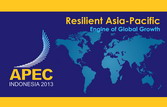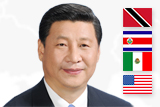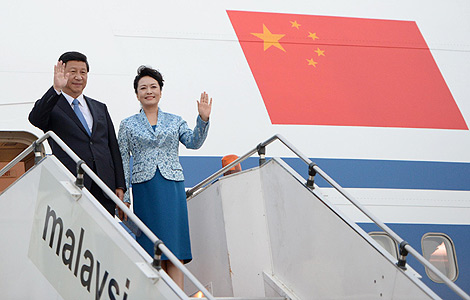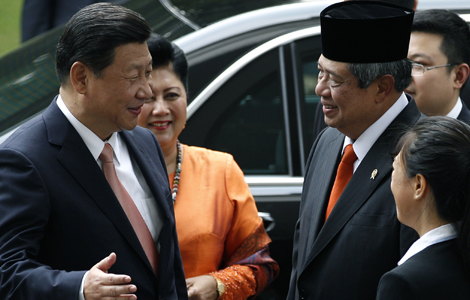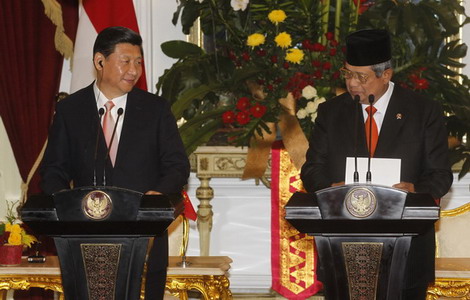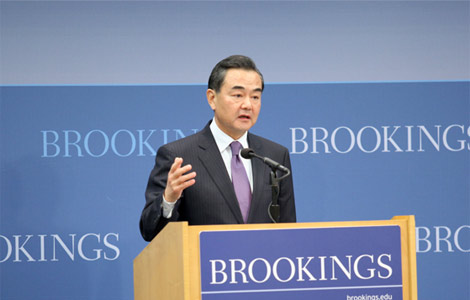Xi arrives in Kuala Lumpur for state visit
By ( Xinhua )
Updated: 2013-10-03
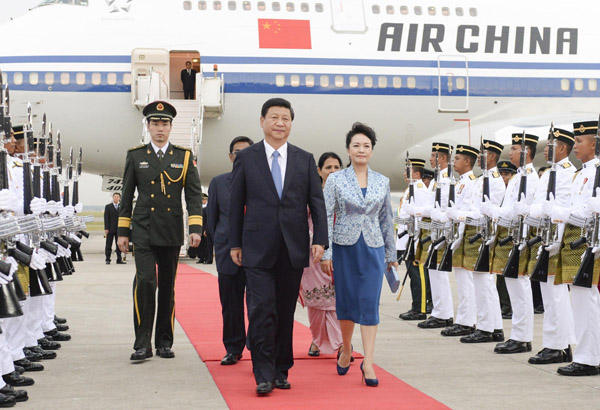 |
|
President Xi Jinping and his wife Peng Liyuan wave as they arrive at Kuala Lumpur, Oct 3, 2013. [Photo/Xinhua] |
KUALA LUMPUR - Chinese President Xi Jinping arrived here Thursday for a state visit to Malaysia, the second leg of his maiden trip to Southeast Asia since he assumed presidency in March.
During his stay in the country, Xi is scheduled to meet Supreme Head of State Abdul Halim Mu'adzam Shah. He will also hold talks with Malaysian Prime Minister Najib Razak and the two leaders will attend the China-Malaysia Economic Cooperation Summit.
Xi on Thursday wrapped up his trip to Indonesia.
Indonesia is the first leg of Xi's Southeast Asia tour. During his two-day stay in the country, the Chinese president and his Indonesian counterpart, Susilo Bambang Yudhoyono, agreed to lift bilateral ties to a comprehensive strategic partnership.
The two leaders pledged to boost China-Indonesia cooperation in an all-around manner so as to expand bilateral exchanges and cooperation into more areas and raise them to higher levels.
After his Malaysia visit, Xi will travel back to the Indonesian resort island of Bali for the 21st informal economic leaders' meeting of the Asia-Pacific Economic Cooperation.
Related reading:
Indonesian legislators praise Xi's speech
China to build community of common destiny with ASEAN
Schedule
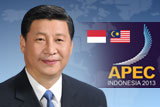
President Xi visits Indonesia, Malaysia, attend APEC summit
Oct 2 to 3: Pay State Visit to Indonesia
Oct 4 to 5: Pay State Visit to Malaysia
Oct 6 to 8: Attend the 21st economic leaders' meeting of APEC forum and meet with global leaders in Bali, Indonesia
Forum
China and ASEAN to handle territorial issues like friends
China and its neighbours should handle the issue of territorial claims as a problem between friends rather than a conflict with one another.
China should increase investment in ASEAN
China should ratchet up cooperation with Association of Southeast Asian Nations countries to expand Beijing's regional influence while countering Washington's Asia-Pacific pivot strategy.

